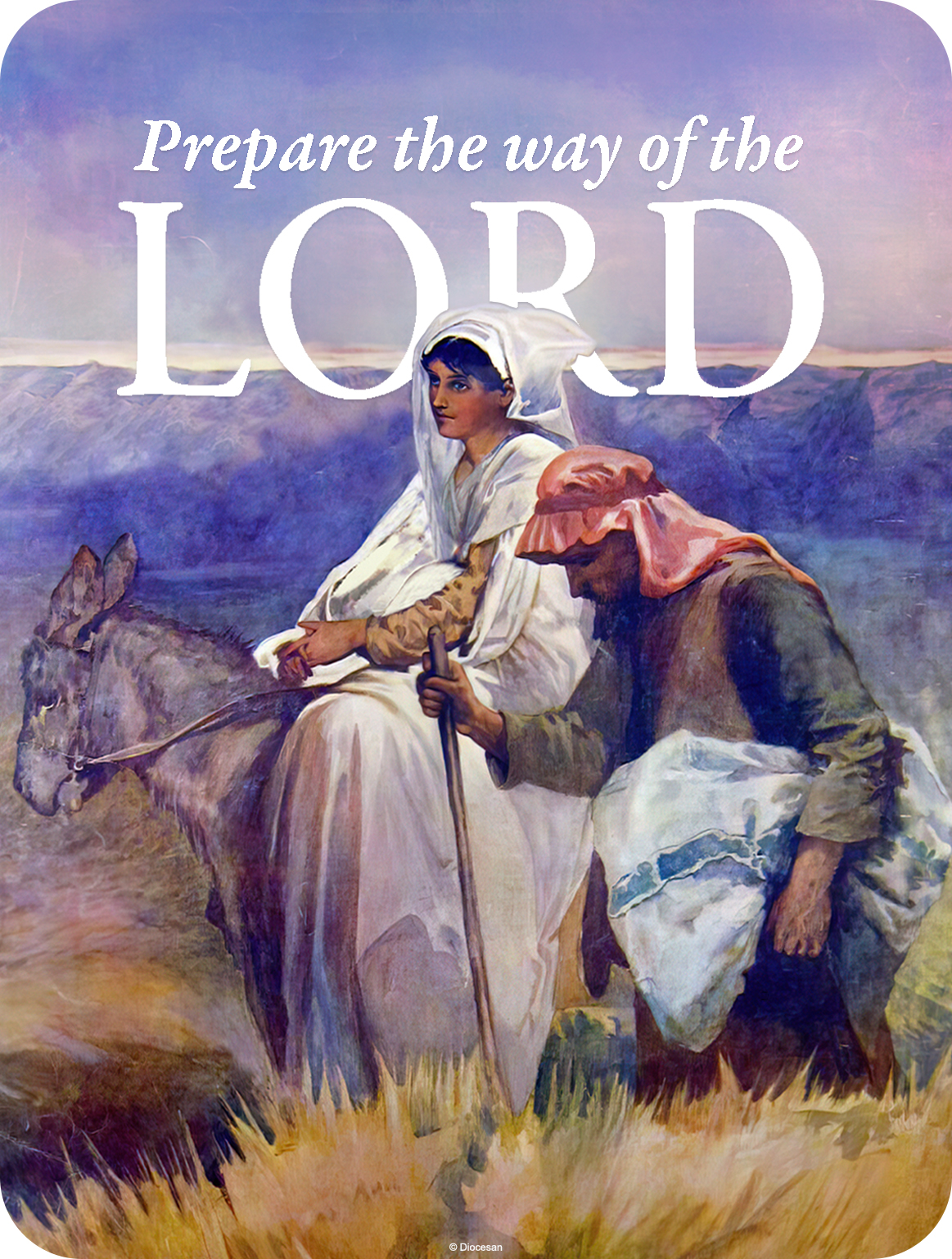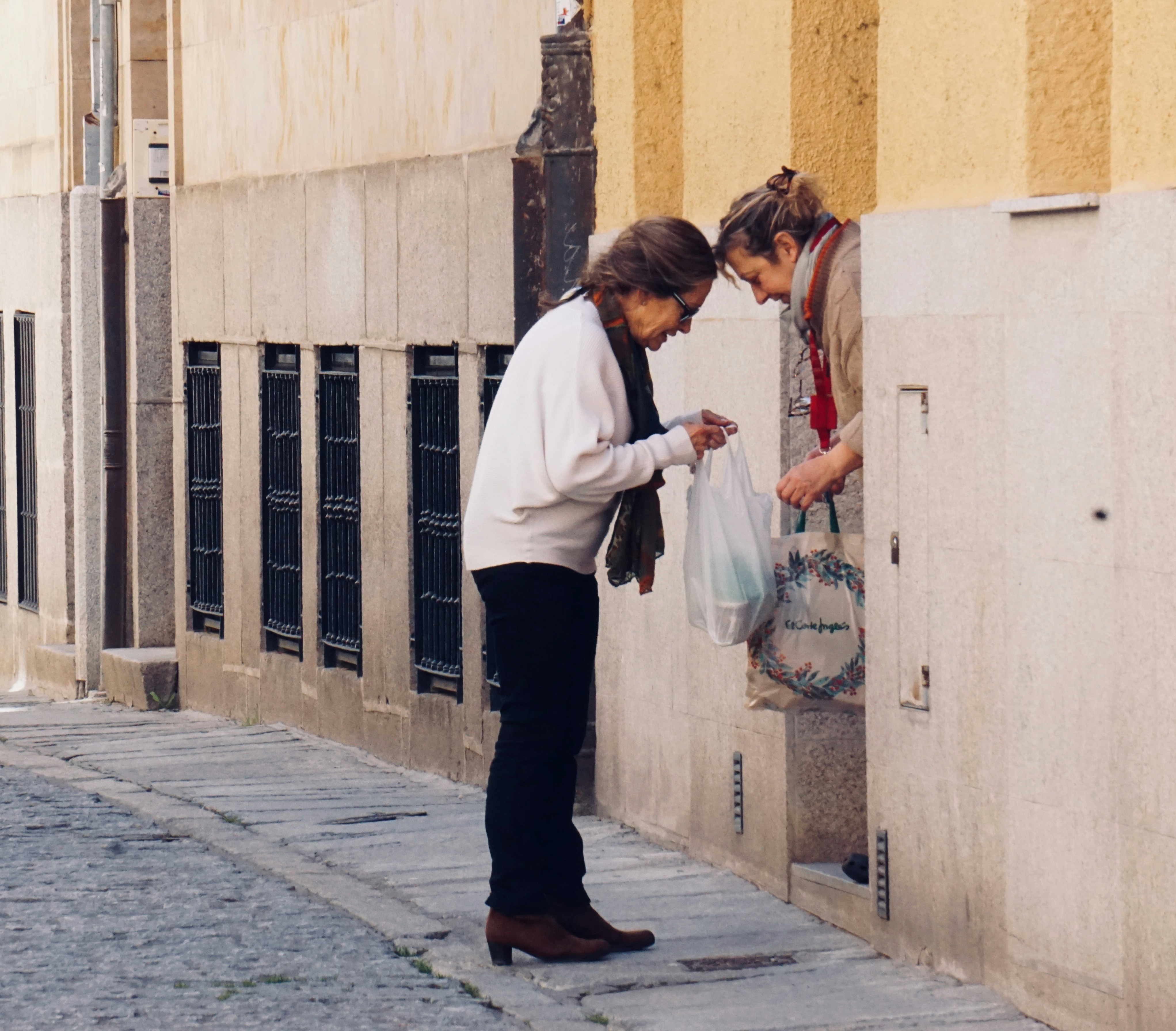The Word of God is truly living and dynamic and surprises me every time I ponder it. Like the whispers where God says we’ll hear His voice, it is the subtle lines that jump off the page that usually get my attention, although I have read the passage a million times. In today’s Gospel from Mark the simple line, “He meant to pass by them,” caused me to pause. Wait, Jesus saw the Apostles in a boat and decided He’d just walk to the other side, not bothering to join them? It seems odd, but the prophet Isaiah writes, “For my thoughts are not your thoughts, nor are your ways my ways,” (Isaiah 55:7).
These are the moments I am most grateful for Scripture scholars! Brant Pitre clarifies in The Case for Jesus (129-130) that this expression is used to describe what God does when he appears to human beings (see Exodus 33:19, 22; 34:6; 1 Kings 19:11). Commentaries suggest Jesus’ intention was to be seen and for His glory to be revealed, and not, as I had wrongly assumed, to sneak past the disciples unnoticed. That seems much more Christ-like than the “I’ll see you on the other side” initial meaning I gave to the passage!
Jesus’ actions, words, and teachings are intended to encourage us in our faith, and some scholars believe that Jesus’ intention was to emulate His pre-incarnate experiences with Moses and Elijah. Displaying His glory, power, and dominion would therefore encourage the Apostles, and, as we read of the account, give strength to our faith as well.
Interestingly, in their fear (or perhaps anxiety), they misread the entire situation, much as I did at first glance of this passage. Fear clouds our judgment and does not allow us to think clearly. It is also fascinating, at least in my own life, how my anxiety tends to cast a darkness over every situation – I am so quick to see (or assume) the worst! It is no accident the first reading from 1 John includes, “There is no fear in love, but perfect love drives out fear.” Jesus’ words, “Take courage, it is I, do not be afraid!” and the fact that He “got “into the boat with them and the wind died down” teach us not to fear.
When Jesus passes by, when we recognize His divine presence, trust Him and let Him into our lives (our boats, so to speak), we too can see the winds of fear swirling around us subside!
La Palabra de Dios es verdaderamente viva y dinámica y me sorprende cada vez que reflexiono sobre ella. Al igual que los susurros en los que Dios dice que escucharemos su voz, son las líneas sutiles que saltan de la página que generalmente me llaman la atención, aunque he leído el pasaje un millón de veces. En el Evangelio de hoy de Marcos, la simple frase: “parecía que iba a pasar de largo”, me hizo detenerme. Un momento, ¿Jesús vio a los apóstoles en una barca y decidió simplemente caminar hacia el otro lado, sin molestarse en unirse a ellos? Parece extraño, pero el profeta Isaías escribe: “Porque mis pensamientos no son tus pensamientos, ni tus caminos mis caminos” (Isaías 55,7).
¡En estos momentos estoy tan agradecida por los académicos de las Escrituras! Brant Pitre aclara en The Case for Jesus (129-130) que esta expresión se utiliza para describir lo que Dios hace cuando se aparece a los seres humanos (ver a Éxodo 33,19 y 22; 34,6; 1 Reyes 19,11). Los comentarios sugieren que la intención de Jesús era ser visto y que Su gloria fuera revelada, y no, como yo había supuesto erróneamente, pasar desapercibido ante los discípulos. ¡Eso parece mucho más como algo que Cristo haría en lugar del significado inicial de “nos vemos al otro lado” que yo le di al pasaje!
Las acciones, palabras y enseñanzas de Jesús tienen como objetivo alentarnos en la fe, y algunos eruditos creen que la intención de Jesús era emular Sus experiencias antes de encarnarse con Moisés y Elías. Por lo tanto, mostrar Su gloria, poder y dominio alentaría a los Apóstoles y, cuando nosotros leemos el relato, también daría fuerza a nuestra fe.
Curiosamente, en su miedo (o quizás ansiedad), malinterpretaron toda la situación, de la misma manera que yo lo hice al ver este pasaje a primera vista. El miedo nubla el juicio y no nos permite pensar con claridad. También es fascinante, al menos en mi propia vida, cómo mi ansiedad tiende a ensombrecer cada situación: ¡soy tan rápida para ver (o suponer) lo peor! No es casualidad que la primera lectura de 1 Juan incluya: “En el amor no hay temor. Al contrario, el amor perfecto excluye el temor”. Las palabras de Jesús: “¡Ánimo! soy yo; no teman” y el hecho de que “[s]ubió a la barca con ellos y se calmó el viento” nos enseñan a no tener miedo.
Cuando Jesús pasa en frente nuestro, cuando reconocemos su presencia divina, confiamos en Él y lo dejamos entrar en nuestras vidas (nuestras barcas, por así decirlo), ¡también nosotros podemos ver cómo los vientos del miedo que se arremolinan a nuestro alrededor se calman!
 Allison Gingras (www.ReconciledToYou.com ) shares an everyday Catholic faith with humor and honesty. Her writing includes The Handy Little Guide to Novenas (OSV), Encountering Signs of Faith (Ave Maria Press), and the Stay Connected Journals for Catholic Women (Our Sunday Visitor), with a new edition “Jesus Heals,” coming in 2025. Allison is the Director of Digital Evangelization for Family Rosary USA.
Allison Gingras (www.ReconciledToYou.com ) shares an everyday Catholic faith with humor and honesty. Her writing includes The Handy Little Guide to Novenas (OSV), Encountering Signs of Faith (Ave Maria Press), and the Stay Connected Journals for Catholic Women (Our Sunday Visitor), with a new edition “Jesus Heals,” coming in 2025. Allison is the Director of Digital Evangelization for Family Rosary USA.Feature Image Credit: jplenio, pixabay.com/photos/sunset-nature-waters-dusk-dawn-3087790/
The views and opinions expressed in the Inspiration Daily blog are solely those of the original authors and contributors. These views and opinions do not necessarily represent those of Diocesan, the Diocesan staff, or other contributors to this blog.












